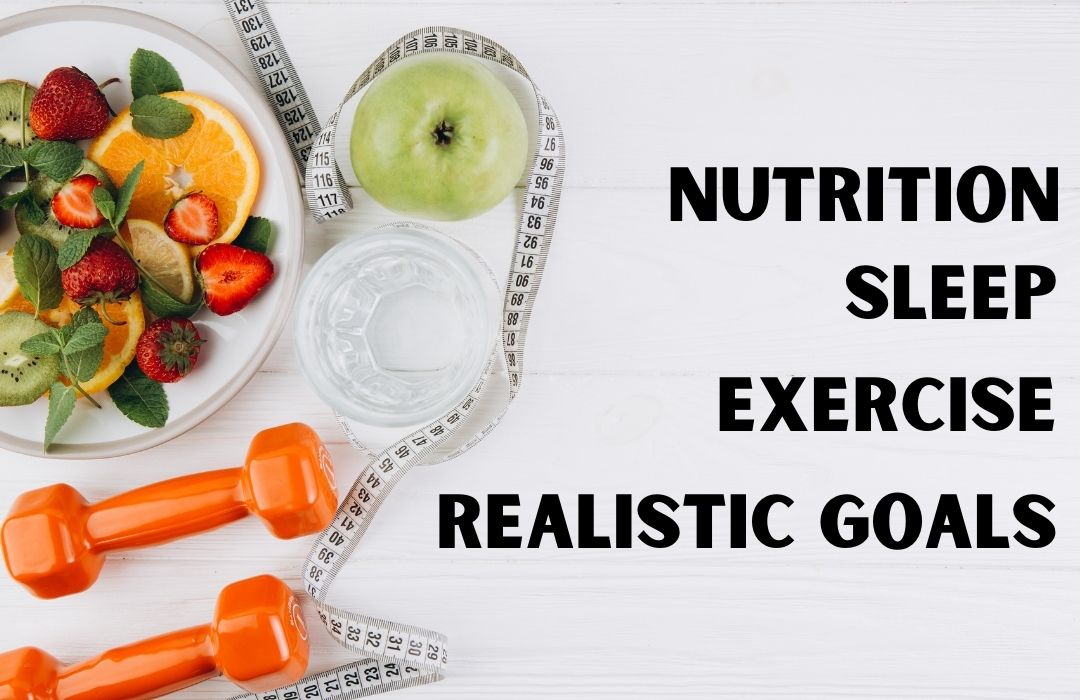The Beginner’s Guide to Weight Loss

Jill Derryberry
May 1, 2021 10:12:25 AM • 6 min read

**This post is a part of our beginner's guide to fitness series. To see all blogs in the series click here.

Losing weight is always a popular topic. Magazine articles, social media and TV programs are always claiming they have the best way to lose weight or the newest diet fad. We are bombarded by before and after pictures and messaging about workouts and how to eat. Yet, with all of this information out there, The CDC reports that the prevalence of obesity in America in 2017-2018 was 42.4%. That means that, using the CDC data and measurement, almost half of Americans are considered obese (a Body Mass Index or BMI of 30.0 or higher)!
So why are so many people still overweight when losing weight seems to be all we can talk about? Maybe it is because the sheer volume of information about health and wellness is overwhelming and confusing so it isn’t helping.
Or it could be because of the fact that a lot of the information out there is about fad diets or weight loss programs that promise quick and easy weight loss. Unfortunately, there is no quick and easy way to lose weight and keep it off in a healthy way. For successful, long-term weight loss, lifestyle changes and healthy habits must be made permanently.
At the very basic level, to lose weight you need to create a calorie deficit. That is, to burn more calories than you are taking in. This can be done with eating healthfully, and being mindful of your calorie intake, along with increased physical activity. Of course, there are many things that can complicate that simple (but not easy to do) equation like medications or certain medical conditions. Plus, it is challenging to implement an effective and sustainable weight-loss plan. While not easy to do, it is possible to lose weight by making some lifestyle changes.
Nutrition – There is a popular phrase, “You can’t out exercise a bad diet”. It is possible to lose weight just by changing how you eat and drink. It is less likely you will lose weight by exercise alone without any nutritional changes. If the number of calories consumed each day still exceeds the amount burned, you will still gain weight despite exercising. It is important to have an idea of how many calories you are consuming.
Some individuals find it helpful to track their calorie intake using an app like My Fitness Pal. As a trainer, I recommend to track for at least a week to get an idea of the calories that are in your typical diet and so you can compare that to how many you need each day.
Most of us overestimate how many calories we burn and underestimate how many we take in. Also, we may not realize how many calories are in what we are eating and drinking until we really take a look. Tracking this information even for just a short time helps to put it into perspective, and to learn about the choices that are best for us.
How much you eat matters, but what you eat is also important. Limit or avoid highly processed foods. Research has shown that reducing sugars and refined carbohydrates (like white bread, white pasta and most highly processed food) helps to lower your insulin levels and reduce hunger. Whole grains will keep you more full for longer and provide more of a nutritional benefit. Focus on eating lean proteins, vegetables, complex carbohydrates (carbs) and fruit.
Drink lots of water and skip the alcohol, soda and juice. Alcoholic beverages contain more calories than you think. Plus they lower inhibitions, which can result in consuming more food. Sodas and juices also contain a lot of calories that don’t provide a feeling of fullness. Like refined carbs, they also can create a blood sugar spike which causes more hunger just a short time later. Sticking with water, unsweetened tea or black coffee will ensure you aren’t drinking all of your calories and is better for your health.
Sleep – Adequate sleep is beneficial for many reasons and your weight is one of them. Many studies show that when tired, people reach for more food and less healthy food. The neurotransmitters that control hunger and fullness cues don’t work like they should without enough rest. Too little sleep also triggers a spike in cortisol, the stress hormone, which signals to your body to conserve energy (i.e. hold on to fat). Many studies have shown that sleep deprivation commonly leads to metabolic dysregulation which may contribute to weight gain, obesity and type 2 diabetes. Most adults need 7-9 hours of sleep each night.
Exercise – I already mentioned how important nutrition is for weight loss and maintaining a healthy weight. As well as how just exercising without considering the calories you are consuming usually won’t result in losing fat. So where does exercising fit in? Exercising helps you to affect the calorie deficit equation by burning more calories than you would at rest.
Resistance training with weights is important for building and maintaining muscle and bone mass. The more muscle you have, the higher your metabolic rate overall. That means you will burn more calories all the time with more muscle! Also, you will continue to burn calories after a strength training session. With steady state cardio (think a walk, leisurely bike ride, or a jog), your calorie burn ends with the exercise. This afterburn created by weight training is due to your body repairing the microscopic muscle tears that happen when you challenge your muscles with weights. These tears will repair and that is how your muscles get stronger.
Any extra movement counts and helps burn calories. Think about ways you can increase your physical activity throughout the day if you can't fit in formal exercise on a given day. For example, make several trips up and down stairs instead of using the elevator, or park at the far end of the lot when shopping.
Both weight training and cardio exercise are important for your overall health. Either combine your cardio and strength training in intervals or complete your strength training then get your cardio in or even do them on different days. Choosing the type of workouts you do depends on your fitness level and which you like doing. The exercise that will burn the most calories is the one that you will do on a consistent basis! Most importantly, make physical activity a part of your lifestyle for your health, not only to burn calories. So even if you are working towards burning fat and reducing inches around your waistline, remember that exercise is so much more than just something to help with weight loss. Regular exercise helps to regulate your blood sugar and hormones, maintain a healthy blood pressure, strengthen your bones and muscles, increases the growth of new brain cells and decreases your risks of illnesses from heart disease, high cholesterol, diabetes, depression and more.
Set Realistic Goals – In general, it is best to shoot for losing 1 to 2 pounds a week. To do so, you need to burn around 500 - 1000 calories more than you consume each day, through lower calorie consumption and physical activity. When setting goals, make sure they are SMART -specific, measurable, attainable, relevant and time bound. For example, instead of saying your goal is to lose 50 pounds, break that down.
A goal to lose 5 pounds per month is specific, measurable, most likely attainable (depending on the individual), relevant and time bound. Smaller goals within that bigger goal may also be helpful. For instance, a goal to exercise 3 times this week. These smaller goals can be helpful to create new habits, which are key to weight loss and keeping it off.
Remember that maintaining a healthy body is a lifestyle. It’s not enough to eat less and exercise for only a few weeks if you want long-term, successful weight management. Assess any challenges that may have prevented you from creating healthier habits in the past in order to create strategies to gradually change them and learn how to deal with them. There will always be setbacks, the road to weight loss isn’t a straight one. Start fresh after any bumps in the road. Remember you are planning on changing your lifestyle and that won’t happen in a day or all at once. Progress not perfection!
Want a partner in your weight loss journey or don’t know where to start? Schedule a complimentary fitness assessment with a LivRite Personal Trainer to discuss how they can put a plan together for you and work with you to reach your goals!
STAY UP TO DATE WITH THE LATEST NEWS
Subscribe to our newsletter
